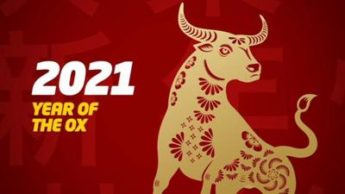CORRECTION IN TECH, FINALLY
posted March 6, 2021
WuRevue Week Ending 3/05/2021
Top News:
03/01: Australia’s central bank unexpectedly moved to keep a lid on rising yields, helping to calm some recently frayed nerves. Investors also took some comfort in a pair of positive developments on the vaccine front (here, here). Meanwhile, economic recovery in February continued to be led by manufacturers in the US as well as in Europe (here, here). Similar upbeat data was replicated in Asia, where Japan’s manufacturing saw growth for the first time in almost two years and China’s privately-owned factories also registered expansion, albeit at a more tepid pace.
03/02: After yesterday’s run-up, China’s top banking regulator cast a negative pall on trading, after the official warned of “the risk of the bubble bursting of foreign financial assets.” Meanwhile, a voting member of the Fed, Lael Brainard, said, “A burst of transitory inflation seems more probable than a durable shift.”
03/03: With the incremental rollout of vaccines worldwide, all eyes will be on the next leg of economic recovery, the service sector, where activities trended higher in select regions in February (here, here,), the Eurozone being a notable exception. Economic data aside, stocks came under pressure due to nagging concerns over bond yields. Resource-rich Australia confirmed its exit from a rare recession by 4Q of 2020.
03/04: Fed Chair Powell failed to assuage investors already fretting over higher rates, after he noted the Bank would be “patient” with higher inflation expected this year. A slight uptick in weekly jobless claims also helped push the NASDAQ into corrective territory. Across the Atlantic, the UK hiked its corporate tax rate to 25% and expanded personal income tax base in order to pay for a six-month extension of its fiscal recovery measures. Retail sales fell precipitously in the Eurozone in January as a result of more restrictive pandemic measures.
03/05: US nonfarm payrolls increased more than expected in February, thanks to a recovery in the leisure and hospitality sector. Gasoline prices may see a jump, after OPEC+ surprisingly agreed to extend production cuts through April. In Asia, China set a GDP growth target of at least 6% this year, reflecting its confidence.
Heard on the Street:
“It is unlikely that the Fed will let US real yields rise much above 0%, given high levels of public and private sector leverage… An associated 10-20% sell-off in US equities would also focus minds. But before then, the pain currently being handed out to Growth-tilted equity portfolios could get worse.”
— Citi’s global strategy team, as quoted by MarketWatch on 02/28/2021
Longer Game:
Warning that China could soon replace the U.S. as the world’s “AI superpower,” the bipartisan National Security Commission recently issued its recommendations, including: 1) increase R&D spending to $32 billion a year by 2026; 2) establish a new advisory body to help guide policies; 3) relax immigration laws for AI experts; 4) create a new university to train civil servants, and 5) accelerate the adoption of new tech by intelligence agencies.
Action Item:
When was the last time you checked your credit report? Prior to the pandemic, every consumer was entitled to a free credit report from the Big Three agencies every year. However, you can now access it every week through April 2022, gratis. Even if you are not seeking credit, it’s important to verify items contained in the databases, given the number of consumer complaints of inaccuracies has more than doubled to 282,000 in 2020.
